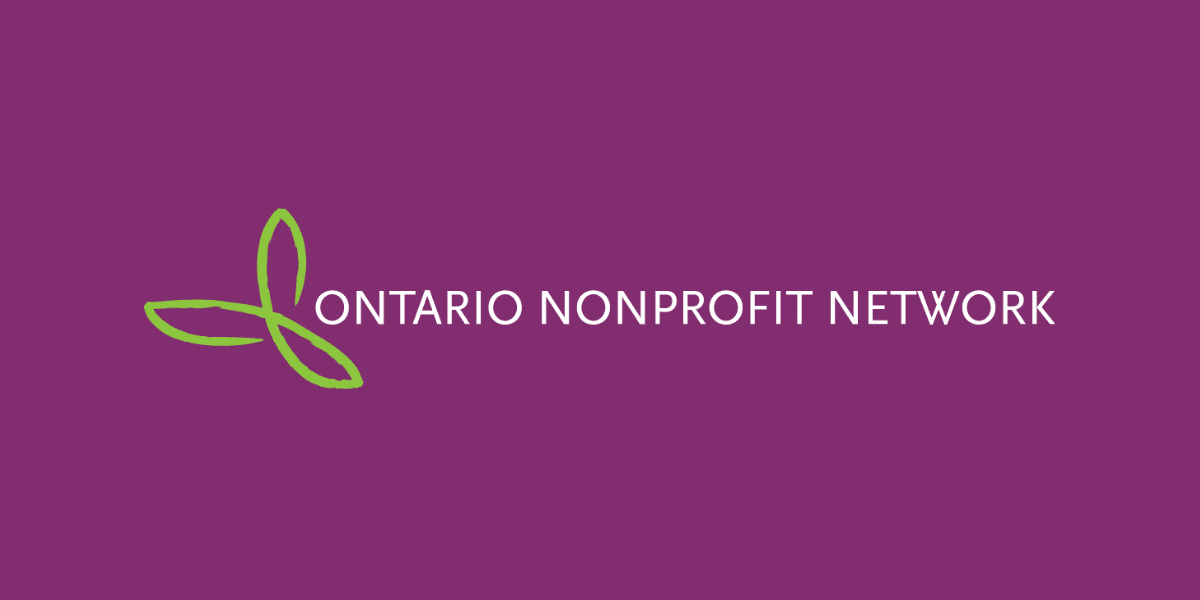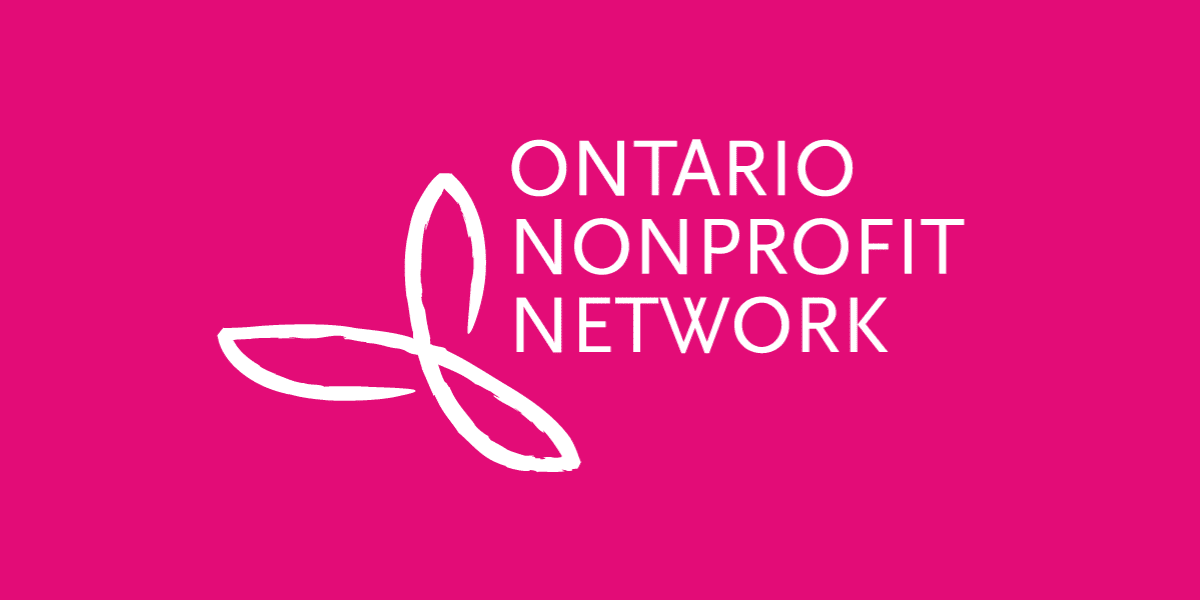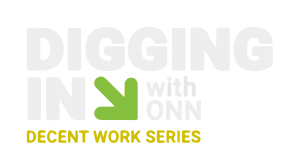Canada’s budget
ONN monitors federal policy and financing in relation to the nonprofit sector. Where relevant, ONN tracks key issues and advocates for supports for Ontario nonprofits through the federal budget. Below, you will find our most recent updates, links to previous budgets, and perspectives from across our network.
Federal budget 2022: Spending less for recovery
The Minister of Finance Chrystia Freeland tabled Budget 2022,
A Plan to Grow Our Economy and Make Life More Affordable, in early April. It is expected to pass with the NDP’s support. This year’s budget spends less and is overshadowed by global events (e.g., cost of inflation and the war in Ukraine). The key pillars are investing in people, the green transition, and innovation and productivity for job creation and prosperity. A bulk of the new money is dedicated to solving Canada’s unaffordable housing crisis.
Key Budget wins for the sector
While the budget fell short of announcing a home in government, any enhancements of the Community Services Recovery Fund, or mentions of the Social Finance Fund, it does propose to:
- Amend the Income Tax Act to allow for charities to fund non-qualified donees
- Increase the Disbursement Quota to 5 per cent for charities with assets over $1 million
- Target money for arts and culture, organizations serving seniors, nonprofits addressing homelessness, addiction supports, legal aid, gender-based violence services, and to establish a Federal 2SLGBTQI+ action plan
- Target money to build capacity in Black-led and Indigenous-led organizations
- Fund infrastructure for nonprofit child care expansion and nonprofit housing
- Significantly invest in co-op housing
ONN’s policy priorities
Our People:
- Employment Insurance (EI):
- $3.9 billion over three years starting this year for EI modernization so it’s more accessible and simple for Canadians:
- 420 hour entrance requirement for regular and special benefits
- 14-week minimum entitlements for regular benefits
- Support multiple job holders by ensuring all insurable hours and employment count towards a claimant’s eligibility
- Simplifying rules around treatment of severance, vacation pay, and other monies paid
- Waiting period waived between January 31, 2021 and September 25, 2021 (this includes regular, fishing, and special benefits)
- Extend temporary enhancements to work-sharing program like longer agreements and streamlined application process
- $5 million over two years starting this year to conduct targeted consultations on EI modernization
- $15 federal minimum wage
- Investing in early childhood educators by valuing their work and providing them with training and development opportunities needed. (Note hiring program can be for wage enhancement (not just new hires or expanded hours)
- $100 million over three years starting this year to the Public Health Agency of Canada to support projects for innovative mental health interventions for populations disproportionately impacted by COVID-19 (including health care workers, front-line workers, youth, seniors, Indigenous people, and racialized and Black Canadians)
- $27.6 million over 3 years for my65+, a group tax-free savings account offered by the Service Employees International Union Healthcare (SEIU), to support incentives for workers in the elder care sector to participate in this program
- Government is open to engaging with interested unions and employer sponsors who can share targeted and kick-start options to strengthen retirement security for those involved in senior care and do not have workplace retirement security coverage
Our Finances:
- $400 million this year to Employment and Social Development Canada (ESDC) to create a temporary Community Services Recovery Fund to help nonprofits and charities adapt and modernize so they can better support the economic recovery in our communities
- Consultations with charities to potentially increase the disbursement quota in 2022
- Expanding the Canada Small Business Financing Act to include nonprofit and charitable social enterprises. (We note that regulatory changes will be required to support nonprofits to generate surplus revenues in order to pay back loans)
- $4.4 billion to Canada Mortgage Housing Corporation (CMHC) with a dedicated stream of funding to support low-income homeowners and rental properties serving low-income renters including cooperatives and nonprofit owned housing for deep home retrofits through interest-free loans worth up to $40,000. The program will be available by summer 2021
- Social Innovation Social Finance Strategy
- Launching planned disbursements of the Social Finance fund, deploying up to $220 million over its first 2 years. These are repayable funds and the first tranche of the $755 million over 10 years announced in 2018
- $25 million per year over 2 years starting this year to renew the Investment Readiness Program with the same intermediaries
- $87.4 million over 5 years, starting this year to modernize federal procurement and create opportunities for specific communities by diversifying the federal supplier base: focus on procuring from Black-owned businesses, “in part” gets to target of 5 per cent of federal contracts to be awarded to Indigenous peoples
Our Regulatory Environment:
- $1 billion over 6 years starting this year to the Universal Broadband Fund for rapid rollout of broadband projects
- Proposed consultation on changing disbursement quota for foundations to boost charitable spending. This would require foundations to spend a larger percentage of their assets (currently 3.5 per cent)
- Income Tax Act amendments related to charities to fight terrorism and false statements (not to respond to regulatory changes demanded by the sector)
- $22.5 million for national infrastructure assessment. Let’s advocate for nonprofit assets included
Our Data:
- $172 million over 5 years starting this year to Statistics Canada to implement a Disaggregated Data Action Plan that will fill data and knowledge gaps
- $17.6 million over 5 years starting this year to create a Data Commissioner who will inform government and business approaches to data-driven issues to help protect people’s personal data and to encourage innovating in the digital marketplace
- $8.4 million over 5 years starting this year to the Standards Council of Canada to continue its work to advance industry-wide data governance standards
- Beneficial ownership registry by 2025 that will provide new data on the nonprofit sector, as well as help with fighting tax avoidance and money laundering
Subsector impacts
Accessibility:
- $272.6 million over five years to Employment and Social Development Canada (ESDC) to support the implementation of an employment strategy for people with disabilities through the Opportunities Fund. Of this funding, $20 million will be allocated to the Ready, Willing and Able program to help persons with Autism Spectrum Disorder or intellectual disabilities find employment.
- Proposes to double the qualifying expense limit of the Home Accessibility Tax Credit to $20,000 for the 2022 and subsequent tax years. This will mean a tax credit of up to $3,000—an increase from the previous tax credit of up to $1,500—for important accessibility renovations or alterations.
- There is no mention of the Canada Disability Benefit (Disability Benefit Act) in the 2022 Federal Budget.
Anti-racism:
- $50 million over two years, starting in 2022-23, to Employment and Social Development Canada for the Supporting Black Canadian Communities Initiative, to continue empowering Black-led and Black-serving community organizations. The Minister of Families, Children and Social Development will explore further options to continue supporting capacity building within Black-led and Black-serving community organizations in the long term.
- $85 million over four years, starting in 2022-23, to the Department of Canadian Heritage to support the work underway to launch a new Anti-Racism Strategy and National Action Plan on Combating Hate. This funding will support community projects that ensure that Black and racialized Canadians, and religious minorities have access to resources that support their full participation in the Canadian economy, while also raising awareness of issues related to racism and hate in Canada.
Arts and Culture Industries:
- $12.1 million over two years, starting in 2022-23, to the National Arts Centre to support the creation, co-production, promotion, and touring of productions with Canadian commercial and nonprofit performing arts companies.
- $50 million in 2022-23 to the Department of Canadian Heritage, the Canada Council for the Arts, and Telefilm Canada.
- $22.5 million over five years starting in 2022-23, and $5 million ongoing, to Canadian Heritage for the Canada Arts Training Fund.
General Covid-19 Relief Measures:
- $3 billion clawed back over the next four years from previously announced pandemic programming. The federal government will be re-examining previously announced spending plans for the COVID-19 pandemic to rein in overspending. No specifics of what programs will be targeted are in the 2022 budget documents, but an update on the initiative will be provided in the 2022 fall economic statement.
Child Care:
- $625 million over four years, beginning in 2023-24, to Employment and Social Development Canada for an Early Learning and Child Care Infrastructure Fund. This funding will enable provinces and territories to make additional child care investments, including the building of new facilities.
Climate Change and Environment:
- Increasing Climate Action Incentive payments, which puts more money in the pockets of eight out of every ten people in the provinces where the federal system applies, and means a family of four will receive, for 2022-2023, $745 in Ontario
- $150 million over five years, starting 2022-23, to Natural Resources Canada to develop the Canada Green Buildings Strategy. The strategy will include initiatives to further drive building code reform; to accelerate the adoption and implementation of performance-based national building codes; to promote the use of lower carbon construction materials; and to increase the climate resilience of existing buildings.
- $200 million over five years, starting in 2022-23, to Natural Resources Canada to create the Deep Retrofit Accelerator Initiative, which will provide support for retrofit audits and project management for large projects to accelerate the pace of deep retrofits in Canada, including a focus on low-income affordable housing.
- $780 million over five years, starting in 2022-23, to Environment and Climate Change Canada to expand the Nature Smart Climate Solutions Fund.
Employment and Training Programs:
- Amend Part II of the Employment Insurance Act to ensure more workers are eligible for help before they become unemployed, and that employers can receive direct support to re-train their workers.
- $1.9 million in 2022-23 in order to complete the Employment Equity Act Review in coming months. A final report will be publicized in fall 2022.
- Modernization of Employment Insurance continues with consultations. The government will release its long-term plan for the future of EI after the consultations conclude.
Gender Equity and LGBTQ2SI:
- $25 million over two years, starting in 2022-23, for Women and Gender Equality Canada to establish a national pilot project for a Menstrual Equity Fund that will help make menstrual products available to Canadians in need.
- $100 million over five years, starting in 2022-23, to support the implementation of the forthcoming Federal LGBTQ2 Action Plan, which will support a fairer and more equal Canada for LGBTQ2 Canadians.
- $539.3 million over five years, starting in 2022-23, to Women and Gender Equality Canada to enable provinces and territories to supplement and enhance services and supports within their jurisdictions to prevent gender-based violence and support survivors.
Health and Long-term Care:
- $5.3 billion over five years, starting in 2022-23, and $1.7 billion ongoing, to Health Canada to provide dental care for Canadians.
- In 2022-23, the Canada Health Transfer will provide provinces and territories with $45.2 billion in support—an increase of 4.8 per cent over the baseline for 2021-22
- $140 million over two years, starting in 2022-23, to Health Canada for the Wellness Together Canada portal so it can continue to provide Canadians with tools and services to support their mental health and well-being.
- Creation of an expert panel to study the idea of an Aging at Home Benefit. The panel will report to the Minister of Seniors and the Minister of Health. More details will be provided in the months to come.
- $20 million over two years, beginning in 2022-23, for an expanded New Horizons for Seniors Program to support more projects that improve the quality of life for seniors and help them continue to fully participate in their communities.
Housing and Economic Development:
- $4 billion over five years, starting in 2022-23, to the Canada Mortgage and Housing Corporation to launch a new Housing Accelerator Fund. The fund will be designed to be flexible to the needs and realities of cities and communities. Its focus will be on increasing supply, but government supports will be targeted to ensure a balanced supply that includes a needed increase to the supply of affordable housing
- Flexibility within federal infrastructure programs to tie access to infrastructure funding to actions by provinces, territories, and municipalities to increase housing supply where it makes sense to do so. This flexibility would be included within the Canada Community-Building Fund, when its current administrative agreements with provinces and territories are renewed; and other future infrastructure programs.
- $500 million to launch a new Co-operative Housing Development Program aimed at expanding co-op housing in Canada. This new program will be co-designed with the Co-operative Housing Federation of Canada and the co-operative housing sector.
- $1 billion in loans to support coop housing projects.
- $1.5 billion over two years, starting in 2022-23, to the Canada Mortgage and Housing Corporation to extend the Rapid Housing Initiative. This new funding is expected to create at least 6,000 new affordable housing units, with at least 25 per cent of funding going towards women-focused housing projects.
- $2.9 billion in funding, on a cash basis, under the National Housing Co-Investment Fund, so that all remaining funds will be spent by 2025-26. This will accelerate the creation of up to 4,300 new units and the repair of up to 17,800 units for the Canadians who need them most.
- $475 million in 2022-23 to provide a one-time $500 payment to those facing housing affordability challenges. The specifics and delivery method will be announced at a later date.
- $562.2 million over two years, beginning in 2024-25, for Infrastructure Canada to continue providing doubled annual funding for Reaching Home. This funding will provide longer term certainty for the organizations doing vitally important work across the country and ensure that our communities have the support they need to continue to prevent and address homelessness.
- $18.1 million over three years, starting in 2022-23, to Infrastructure Canada to conduct research about what further measures could contribute to eliminating chronic homelessness.
- $62.2 million over three years, beginning in 2024-25, for Infrastructure Canada, with support from Veterans Affairs Canada, to launch a new Veteran Homelessness Program that will provide services and rent supplements to veterans experiencing homelessness in partnership with community organizations.
- $200 million in dedicated support under the existing Affordable Housing Innovation Fund. This will include $100 million to support nonprofits, co-ops, developers, and rent-to-own companies building new rent-to-own units.
Indigenous Programs/Reconciliation:
- $300 million over five years, starting in 2022-23, through the Canada Mortgage and Housing Corporation to co-develop and launch an Urban, Rural, and Northern Indigenous Housing Strategy.
- $87.3 million over three years, starting in 2022-23, to enable Indigenous communities to continue to work with the federal government and the provinces and territories to support the implementation of Indigenous child welfare laws.
- $209.8 million over five years, starting in 2022-23, to Crown-Indigenous Relations and Northern Affairs Canada to increase the support provided to communities to document, locate, and memorialize burial sites at former residential schools; to support the operations of and a new building for the National Centre for Truth and Reconciliation; and to ensure the complete disclosure of federal documents related to residential schools.
- $10.4 million over two years, starting in 2022-23, to Justice Canada to support the appointment of a Special Interlocutor who will work collaboratively with Indigenous peoples and make recommendations for changes to strengthen federal laws and practices to protect and preserve unmarked burial sites
- $5.1 million over five years, starting in 2022-23, to Public Safety Canada to ensure the Royal Canadian Mounted Police can support community-led responses to unmarked burial sites.
- $25 million over three years, starting in 2022-23, to Library and Archives Canada to support the digitization of millions of documents relating to the federal Indian Day School System, which will ensure survivors and all Canadians have meaningful access to them.
- $190.5 million in 2022-23 to Indigenous Services Canada for the Indigenous Community Support Fund to help Indigenous communities and organizations mitigate the ongoing impacts of COVID-19.
- $227.6 million over two years, starting in 2022-23, to maintain trauma-informed, culturally-appropriate, Indigenous-led services to improve mental wellness, and to support efforts initiated through Budget 2021 to co-develop distinctions-based mental health and wellness strategies.
- $29.6 million over three years, starting in 2022-23, to Crown-Indigenous Relations and Northern Affairs Canada to support the co-development of an Indigenous Climate Leadership Agenda to support self-determined action in addressing Indigenous peoples’ climate priorities. The funding will also support the phased implementation of distinctions based climate strategies.
Social Services:
- $2.1 billion over five years and $317.6 million ongoing in new funding to support the resettlement and processing of new permanent residents as part of Canada’s Immigration Levels Plan
- $100 million over three years, starting in 2022-23 to Health Canada for the Substance Use and Addictions Program to support harm reduction, treatment, and prevention at the community level.
- $60 million in 2023-24 to increase the federal contribution to criminal legal aid services.
Social Enterprises and Cooperatives:
- Develop an Employee Ownership Trust—a new, dedicated type of trust under the Income Tax Act to support employee ownership.
- Amend the Canada Business Corporations Act to implement a public and searchable beneficial ownership registry, which will now be accessible before the end of 2023.
Sports and Recreation:
- $16 million over three years, starting in 2022-23, to the Department of Canadian Heritage, to support actions to create a safer sport system.
What others are saying




